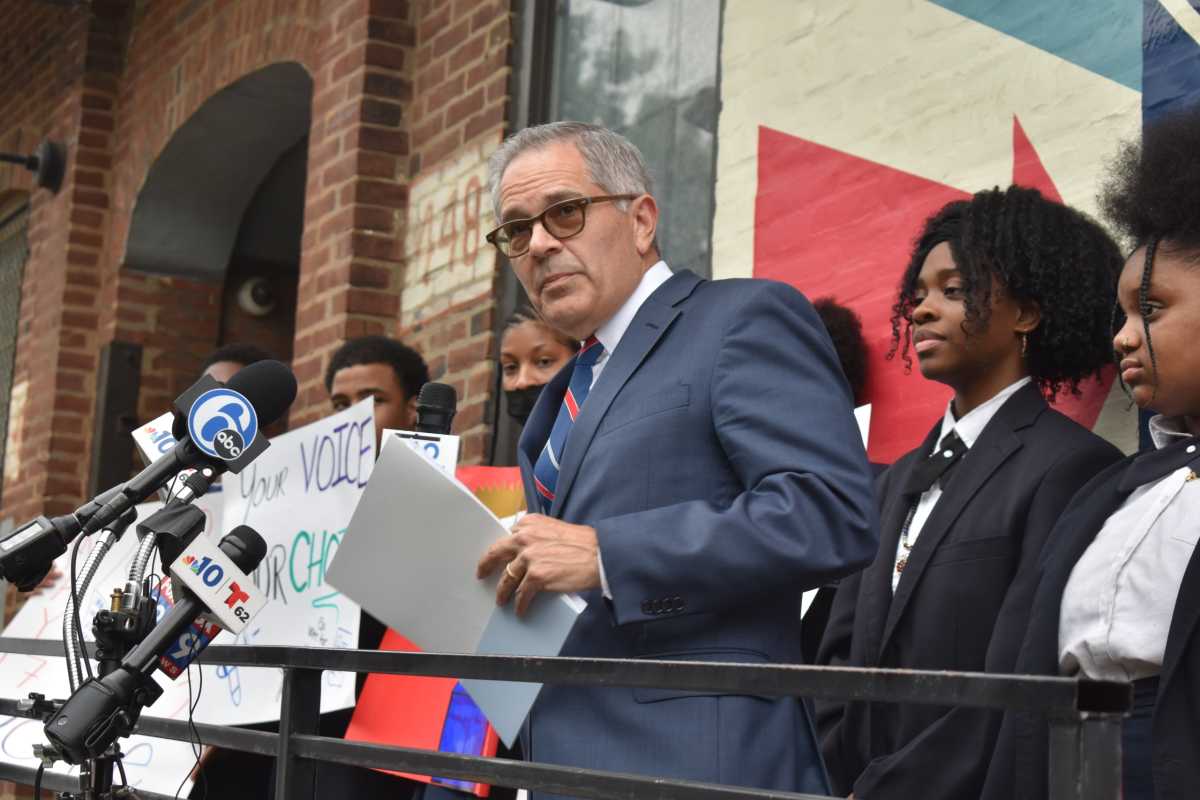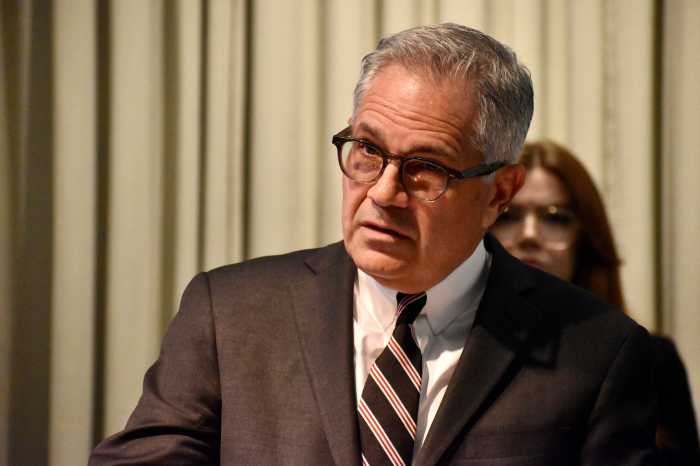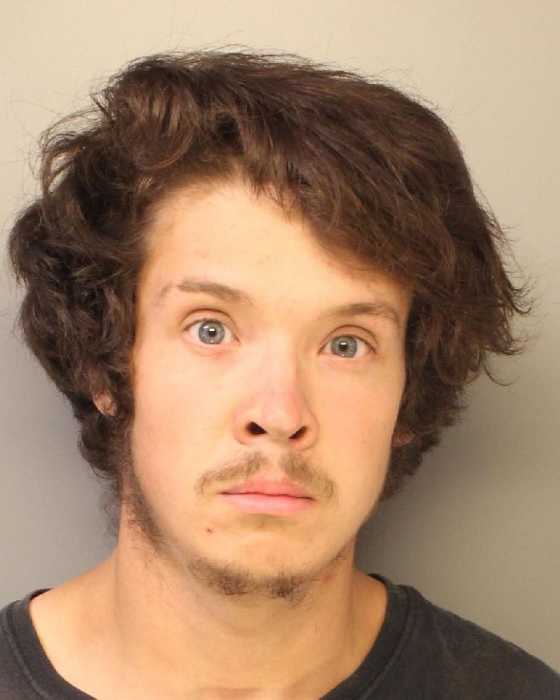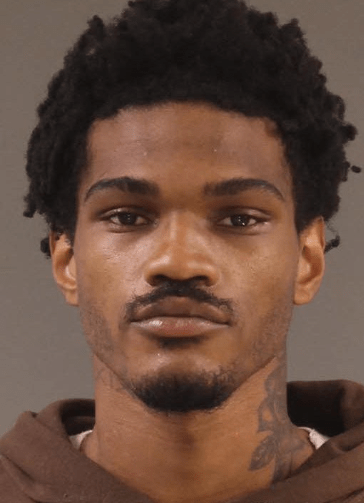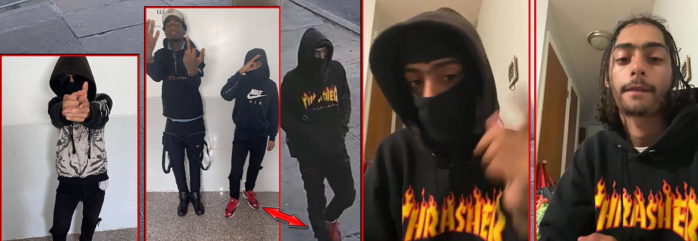Larry Krasner remains a polarizing figure.
Even as he pursues a third term as district attorney, Krasner, in his view, is running “an outsider campaign.” The Philadelphia Democratic Party has not endorsed a candidate in Tuesday’s primary – the same decision political leaders made when he initially ran for reelection four years ago.
Campaign finance data shows that Krasner’s challenger, former Municipal Court Judge Pat Dugan, has outspent him 2-1, drawing financial might from the powerful Philadelphia Building Trades Council, a group of construction unions.
“It is a people’s campaign, and it is ultimately against insiders and institutions,” Krasner said in a one-on-one interview with Metro Wednesday. “We’re kind of back where we started.”
Though he retains strong support from the party’s progressive wing, Krasner attracts almost as much scorn from moderate Democrats as he does from Republicans.
State legislators have impeached Krasner — failing to remove him from office — and passed measures aimed at limiting his authority, such as a law appointing a special prosecutor to handle cases occurring on SEPTA property.
Dugan told Metro that Krasner is an “obstructionist” who does not get along with other elected officials and partners in the criminal justice system.
Krasner, perhaps unsurprisingly, has a different explanation for the pushback. His efforts at reform are threatening a system that benefits from locking up Philadelphians, propping up the economies of rural counties where most of state prisons are located.
He said his policies have cut off about 50,000 years of incarceration that would have been imposed under a traditional prosecutor. Krasner, using rough math, calculated that his approach could result in approximately $3 billion in unspent money.
“A bunch of high school grads upstate in the legislature who have never participated in the legal system at all – not lawyers, not cops, not probation officers,” he said. “They got all the answers, and those answers involve: We want prisoners from Philly, and we are upset that we’re not getting enough prisoners from Philly.”
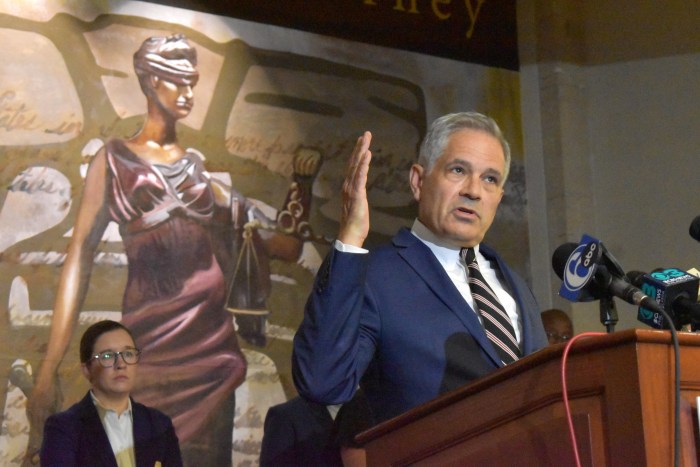
Following a dramatic rise in gun violence that coincided with the height of the coronavirus pandemic, homicides in Philadelphia have decreased sharply over the past few years and are currently on track for a 50-year low. Police statistics indicate that crime has also been dropping in most other categories, including shootings and robberies.
While Krasner does not take full credit for the decline, he believes the DA’s Office, under his watch, has made an impact through a significant investment in prevention and the increased use of technology and forensic tools to solve cases.
“We’re doing some stuff right, and the people know it,” he said, citing an internal campaign poll that found that Philadelphia was among the only major cities where residents correctly identified that crime was decreasing.
Dugan, however, credits the policies of Mayor Cherelle Parker and Police Commissioner Kevin Bethel for the declining crime rate. “I say we’re getting back to the pre-Krasner numbers right now,” he added. “It’s just a natural turn.”
Krasner compared being district attorney to “maintaining a garden or maintaining a farm,” meaning the work is constant and ongoing. He is concerned the progress he’s made in reshaping the city’s justice system would be undone under Dugan.
“All of his solutions are to do something that existed 10 years ago,” he told Metro. “There’s nothing, in my opinion, that suggests that he would bring innovation, that he would support controversial things that have worked and are positive for public safety.”
“His entire confusing platform is reminiscent of traditional politics of fear,” Krasner continued. “It is dark in many ways.”
Dugan and other Krasner critics have questioned the office’s professionalism, turnover rate, training and communication with victims during his tenure. Dugan says he personally dealt with those issues during his time as a judge.
During the pandemic, the DA’s Office had lower turnover, Krasner said, than many major private law firms, which pay higher salaries.
Keeping in touch with victims and survivors is a challenge, he acknowledged, but Krasner said he has doubled the number of victim-witness positions; created a unit of people with first-hand experience to help homicide victims; and established a communication tracking system to ensure accountability for prosecutors.
Krasner noted that Dugan would have seen more inexperienced attorneys because Municipal Court’s criminal division only oversees misdemeanor cases and preliminary proceedings for felonies.
“He is a misdemeanor judge, and all the lawyers he sees are basically brand new, because that is where, as a brand new lawyer, you learn,” he said.
“These are some of the most talented lawyers in the country who make a huge financial sacrifice to come here because they believe in what we are doing,” Krasner continued. “Every one of them has a resume that is more impressive than Judge Dugan’s.”
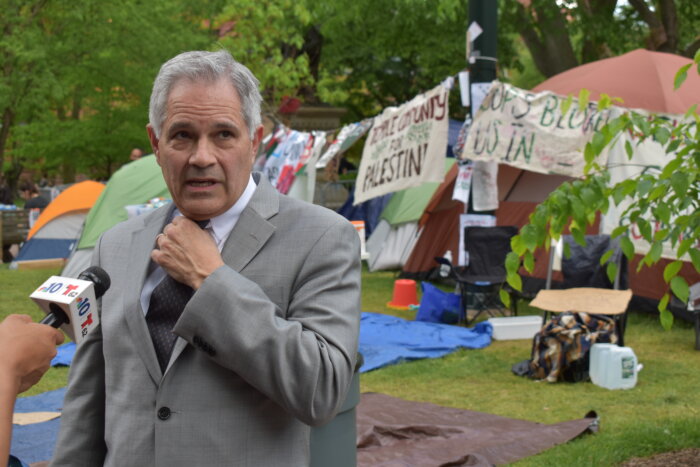
Dugan has accused Krasner of using Donald Trump as a punching bag, taking advantage of the president’s unpopularity in the city to score political points. A county prosecutor is limited in how they can confront the White House, Dugan told Metro.
“He is either being disingenuous or he actually doesn’t know how important state court prosecutors are at this time, and both of those are disqualifying,” Krasner said.
He pointed to Manhattan District Attorney Alvin Bragg, whose office convicted Trump of 34 felony counts. A president is unable to pardon state convictions, Krasner noted, and he signaled his willingness to charge Trump’s associates if they commit crimes in Philadelphia.
Opponents, including Dugan, have described Krasner as overzealous, at times, in his prosecution of police officers. Krasner said he would not hesitate to bring a case against a U.S. Immigration and Customs Enforcement agent who oversteps their legal authority.
Prior to being elected in 2017, Krasner, 64, who lives in Center City, operated a law practice where he tried thousands of criminal and civil rights cases, dozens of which focused on police misconduct.
“I would be very concerned if my opponent was in office that he would reverse and undo a lot of things that have made us much safer, that have made the system much fairer and have also made us much freer,” he said.



